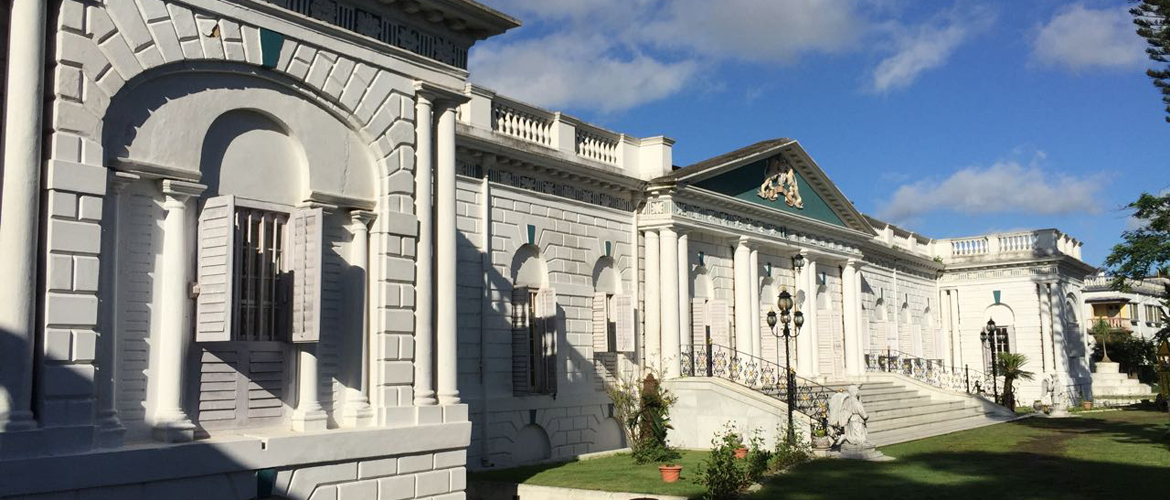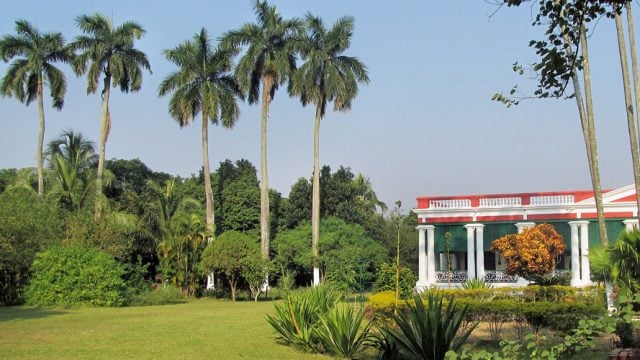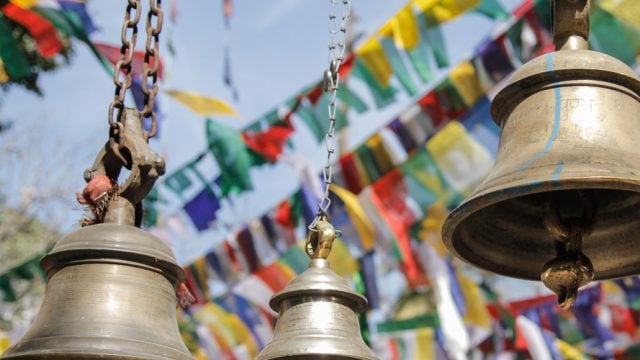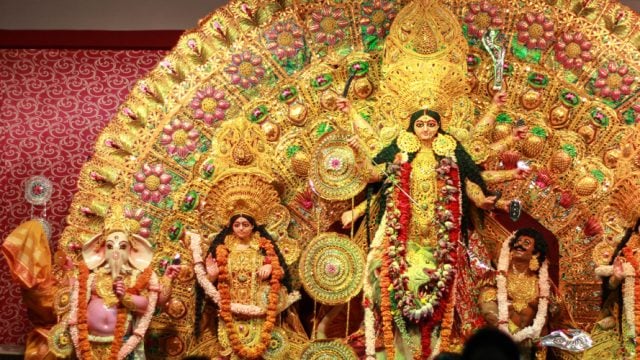“It was like the palace of Sleeping Beauty with shrubs and vines claiming the greater part of

We were at Cossimbazar Rajbari (palace) adjacent to the historical town of Murshidabad in West Bengal. Way back in time, when Murshidabad was the capital of the Nawabs of Bengal, Cossimbazar was a flourishing port on the Ganga, tucked inside a bend in the river. So it was here –around 1700 – that Ajodhya Ram Roy of Pirojpur village decided to settle down with his family. Ajodhya Ram Roy and his son Dinobandhu Roy traded in silk and built up a sizable business in silk export. But after the English East India Company defeated the Nawab of Murshidabad and subsequently decided to straighten out the course of Ganga to facilitate direct passage of boats between Murshidabad and Behrampore (now Baharampur), Cossimbazar lost its strategic importance and dwindled away. The Roy family too began to look at other options.
Dinobandhu Roy’s son Jagabandhu Roy, became a ‘dewan’ of the East India Company but subsequently quit his service and purchased a ‘zamindari’ in Sarail (now in Bangladesh). Later generations, by dint of their educational prowess and business acumen, continued to prosper.
In recognition of the family’s benevolence towards the local people, the British government conferred the title of ‘Rai Bahadur’ to Annada Prosad Roy. They also wanted to confer upon him the title of ‘Raja’ but unfortunately Annada Prosad died on the eve of the ceremony. Later the title was conferred upon his son Ashutosh Nath Roy. Meanwhile, the palace was also rebuilt in parts or expanded through new buildings, temples, offices, gardens, tennis courts, etc. over time.
“My grandfather Raja Kamalaranjan Roy stayed here but it was not easy to maintain a palace that required around 200 guards alone for security, not to speak of the other household staff, the gardeners, and others,” Pallab Roy filled us up on his family history as we picked our way through the sprawling palace.
Therefore, with the abolition of ‘zamindari’ in the 1950s, earnings dwindled and the palace had to be shut down while the family moved to their Calcutta home for better pursuits. The Roys shut down the Cossimbazar Palace but did not abandon it.
It was in the early 90s that the family decided to have a go at the restoration of the palace. Many areas had been walled up for lack of upkeep, objects stolen and many of the sections in severe disrepair. “We realised that the amount of work and the money necessary to restore the palace would be crippling. But we refused to give up,” said Roy.


Post renovation, the Roys have converted some of the rooms into a walk-through museum. We crossed the wide verandah, a hall that contained bric a bracs and animal trophies, to enter the magnificent Central Ball Room. The room was a throwback to the European influence, with chandeliers and antique Victorian furniture, paintings, mirrors and other artefacts (though they could have done without the kitschy soft toy tiger). The bed room contained a traditional, high, four-poster bed, clothes racks, an old-fashioned dressing-table and a ‘tana pakha’ or hand-pulled fan (a fan that would be manually operated with the help of a rope by a ‘punkah-puller’ sitting outside the room). Antique cabinets, cupboards, more paintings and chandeliers, and a 20-feet dining table were the highlights of the dining room. The huge five-arched hall that served as the court room was a perfect study of lofty Renaissance architecture.
We walked past the sprawling garden and the tennis court and entered the temple complex.
The Lakshmi Mandir is the first ancestral house of the Roys, where Ajodhya Ram Roy had settled when he arrived in Cossimbazar. The Laxmi Mandir, Chandimandap and the annex buildings were built in early 1700s.

The Roy family used to hold the annual Durga Puja at their Pirojpur home, which they continued at Cossimbazar. Even today the puja is observed at the renovated ‘chandimandap’ – a hall with an open courtyard in marble in the middle, a restored ‘char chala’ roof, the ‘garbhagriha’ or the sanctum sanctorum where the deities are housed; on the opposite lay the ‘majlish ghar’ (where musical programmes were held) with arched and frescoed two-storied viewing galleries on both sides. One of the best time to visit Cossimbazar is during the Durga Puja if you want to know about the traditional rites and rituals. We paid our respect to the family deity of RadhaGovinda Jiu in a temple decorated with arches and pillars.
Our sumptuous lunch was laid out in the open inner courtyard, known as the ‘andar mahal’, surrounded by the stylised two-storey building.
The Roy family has converted a few rooms of the palace into guest rooms where you can enjoy the old world charm and traditional hospitality. It can also be a base to explore the historic city of Murshidabad.
Information: Cossimbazar is about 240km by road from Kolkata. Although Cossimbazar has a railway station, it is convenient to travel by train to Baharampur Court station from Kolkata and then take a local transport to the Cossimbazar Rajbari or the Cossimbazar Roy’s Palace (about five km away). The best time to travel is in winter or during the festivals (Durga Puja, Rathayatra, etc). If shopping is on your mind, the palace has an adjoining outlet where you can purchase the famous Murshidabad silk sari and other garments. The Roy’s Cossimbazar Palace can be seen in a day visit with special permission and a small fee. But spending at least a night here can be a rewarding experience. For more details, contact: 098310 31108.
Cossimbazar Rajbari
Murshidabad
Uttara Gangopadhyay





